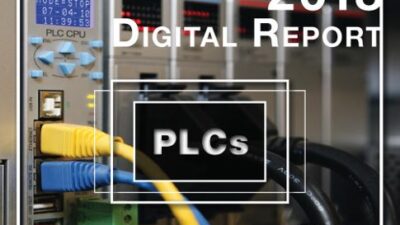New zero-petroleum plastics manufacturing ideas include using bacteria to ferment organic and non-organic waste into bioplastics, and using vegetable oils to create a polyethylene-like bioplastic.
The American Society for Microbiology reports from its 109th General Meeting that scientists are now looking to microorganisms to replace the use of petroleum plastic in order to produce environmentally-friendly plastics.”Organic waste from agriculture, industries and households forms a very large resource that is currently discarded or at best transformed into biogas. From a sustainability point of view it is desired to convert these organic resources in chemicals,” says Mark van Loosdrecht of Delft University of Technology in the Netherlands, who has been working on using bacteria to transform this waste into bioplastics known as polyhydroxyalkanoates (PHAs) .PHAs are linear polyesters produced by bacterial fermentation of sugar or lipids (fats). They are produced by the bacteria to store carbon and energy. More than 150 different monomers can be combined within this family to give materials with extremely different properties. These plastics are biodegradable and are used in the production of bioplastics. However, the high cost of PHA production compared to conventional plastics has limited their use in a wide range of applications.Using technology derived from wastewater treatment systems, van Loosdrecht and his lab have developed a process using open microbial cultures to convert organic wastes to PHAs. This new process is able to produce just as much PHA as existing processes at specific rates that are up to three times faster.Other new plastic development processes using non-petroleum-based products reported at the meeting include:
Kevin O’Connor at the University College in Dublin, Ireland, has developed a new process using bacteria to produce PHAs from waste, only the waste is not organic. O’Connor has found a way to transform traditional plastics into biodegradable plastics. Using a process called pyrolysis, the waste plastics are heated in the absence of air, causing a breakdown of the molecular bonds. What’s left is an oil that is then fed to natural soil bacteria that use it to produce PHA. The process was initially developed using polystyrene, one of the most widely used plastics, but O’Connor says it also works on other plastics including polyethylene terephthalate (PET), the plastic used to make water bottles.
Richard Gross from the Polytechnic University in Brooklyn, New York, is using bacteria that produce a building block from vegetable oils that can be used to make a plastic that is very much like polyethylene. However, unlike polyethylene, when it becomes waste it can be converted by mild enzymatic methods to biodiesel fuel. Gross in collaboration with colleagues at DNA 2.0 engineered a yeast to specifically ferment a fatty acid into a compound that can be processed into a bioplastic.
– Edited by David Greenfield , editorial director
Control Engineering News Desk
Register here .


